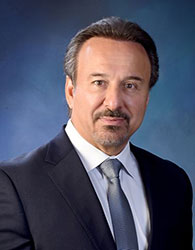The auto sector is facing significant challenges. With the proper leadership in place, these challenges also represent huge opportunities.
by Tony Papa, Managing Partner, Detroit, USA, NGS Global
The automotive sector is facing a unique set of challenges to digitize and electrify rapidly. The next few years are vital for a transformational shift, but with the proper leadership in place, these challenges also represent huge opportunities.
Prior to the global financial crisis and subsequent automotive industry crisis of 2008-10, investors would look to the health of the automotive sector as a litmus test of consumer confidence and expected GDP growth. The decade prior to 2008, for example, at a time when the dot-com bubble burst, world motor vehicle production was growing by an average of more than 3% per year. The industry also showed resilience immediately after the crisis, with vehicle production growing by 26% in 2010 and growing year-on-year until 2017.
Advancements in mechanics and lightweighting have been a key historical component of the automotive industry’s growth. It is becoming increasingly clear, however, that innovation is now occurring in electronics, sensors, and the digital environment. All major original equipment manufacturers (OEM’s) as well as global suppliers have formed strategies around this new electronic realism, understanding that software is going to be the great future differentiator.
Automotive companies have recalibrated their brands, tag lines, missions and visions to include mobility and electrification. Ford now brands itself no longer as a car company but rather as a mobility company. Several major global suppliers including Borg Warner and Magna have made acquisitions or joint venture alliances with other leading partners to leverage their collective strengths, including intellectual property, market reach and portfolios. These huge shifts are starting to occur as a result of digitalization and electrification. But what does leadership look like in this fast-changing landscape?

Huge shifts are starting to occur because of digitalization and electrification. What does leadership look like in this changing landscape?
Numerous industry C-suite executives understand digital and/or electronic transformation as business critical, yet a significant number tell me they are not satisfied with their organization’s ability to execute a proper transformation. Many feel that their organization does not have all the essential leadership expertise that aligns with their digital or electrification roadmaps. Additionally, they are also concerned with their organization’s ability to accept such enormous change.
Technology-driven transformation requires much more than a sound strategy and a smart singular leadership hire. It truly starts with an integrated, holistic business strategy that addresses products, commercialization, market strategy, manufacturing, capacity, and above all talent that brings all these elements together.
Moreover, these traditional business strategy elements are trumped in importance by the dynamic and immediate need for keen leadership steeped in technological expertise that will confidently drive team alignment and effectiveness, proper organizational structures and overall culture readiness.
With so much transformation around us, organizations and leadership must be even more agile and highly adaptable than ever before. What is now evident is that the most progressive and adaptable automotive organizations are behaving like technology companies. That means developing flexible, secure and scalable platforms. Beyond just introducing Chief Digital (or Technology) Officers, they are also fostering more agile cultures and organizational structures as a critical element of a transformation strategy. One that values real-time data which provides for instantaneous decision making rather than looking at past performance on a monthly or quarterly basis.
Tesla, already seen by many analysts as more of a technology company than an auto company, has completely shaken up the industry. VW and GM as well as a host of their top ten global suppliers have made billion-dollar investments and established whole new business entities to rapidly close the gap. While some companies have gotten ahead of the curve on technology, many players will have to seek out alliances or buy the technology they need to adapt and survive.
Only an integrated, holistic leadership approach that addresses talent, team alignment and effectiveness, culture and organizational structure as a system will drive real change. This not only goes for the CEO and other C-suite roles but also for all other traditional functional leadership roles from finance, HR, marketing to supply chain. Those who lead these digitizing core functions will increase efficiency, assimilate vital data, embrace AI and drive toward a more insight-driven organization.
When speaking with other NGS Global partners, private equity firms, boards of directors and hiring leaders, it is evident that there is exponential demand for transformational leaders who operate beyond optimizing revenues, operating profit and earnings per share.
This transformational evolution is moving faster than any other shift in the history of the automotive industry. Not only is this fueled by major technological advances, but also driven by a heightened global awareness of environmental impact and sustainability. Governments across the globe are imposing major emission demands on the industry like never before. The long-term ramifications of these decisions will have significant impact not only on the number of major players remaining but also how they will be structured, organized with possible alliances and the overall leadership and talent needed.
The good news is that much of the global automotive industry is much better prepared today to adapt to this shift than they were even five years ago. Technological barriers have largely been cleared and there’s industry consensus that the global momentum toward a low-emission, electric future is inevitable. The global shift of invested capital not only by OEM’s but all major suppliers into the electric vehicle market is evidence of this.
The big challenge for the industry now will be figuring out how to transition to new digital or electronic technologies while so much capital is still tied up in old technologies. Beyond Industry 4.0, factories will look radically different in future decades. The overall impact on talent will be profound. As part of an effective transformation, leaders will be charged with balancing the shift in technologies and thus the massive migration of organizational talent to maintain pace with technological change.
I see more merger and acquisitions on the horizon as companies leverage their collective strengths as opposed to going it alone. Conversely, newer start up tech players have to find ways to scale up production without running into growing pains and quality problems, while gaining validation and industry acceptance. Undoubtedly, these trends will also have a profound impact on new leadership.
So while a handful of higher profile original equipment and major tier one companies have adapted and are making progress with their collective technological transformations, a significant number of firms continue to grapple to convert their legacy businesses into tech and data-enabled, customer-centric organizations.
Setting aside new business models and strategic project plans, transformational leadership will be key. Without this leadership in place, a holistic approach to creating an integrated business strategy led by a newly transformed executive group that understands how to leverage technology and data capabilities will remain elusive.

Tony Papa
Tony Papa is Managing Partner for the Automotive and Industrial Practices in North America at executive search firm NGS Global. He is based in Detroit. As a former CHRO, Mr. Papa has led the executive talent attraction and development function through which he has recruited hundreds of executives across all functional areas including: operations, supply chain, finance, IT, commercial, engineering, HR and C-Suite. Notably, Papa has built diverse and dispersed leadership teams for new startups, acquisitions and multi-billion dollar organizations.
T +1.248.727.8007
E tony.papa@ngs-global.com
Scott Ellyson, CEO of East West Manufacturing, brings decades of global manufacturing and supply chain leadership to the conversation. In this episode, he shares practical insights on scaling operations, navigating complexity, and building resilient manufacturing networks in an increasingly connected world.